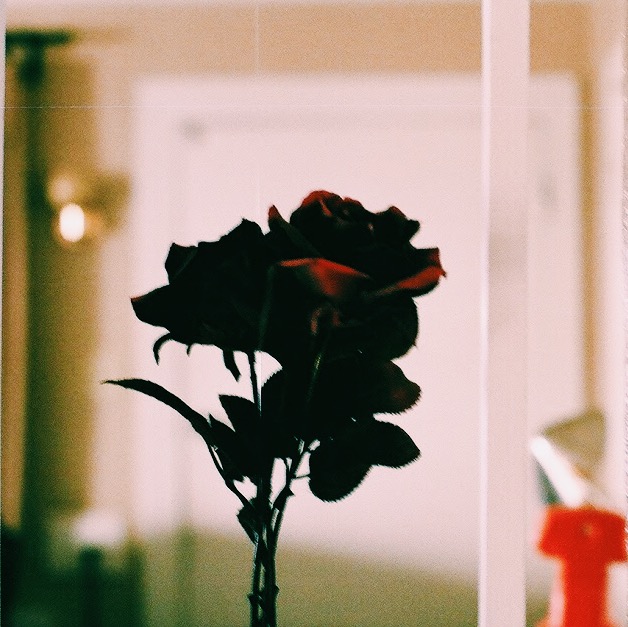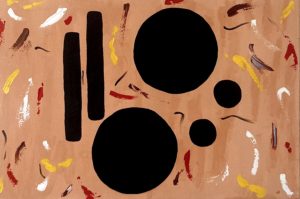INSTA(NT)-STORIES
by Sheila Sadr | Published April 18, 2019 in Arts & Culture
7 minute readInsta(nt) Stories is a reaction, an echo, a written imitation of the story sharing feature on Instagram. It is a collection of moments that would have been captured visually for the platform in the summer of 2018 but have alternatively been documented as written snapshots instead. This period consisted of some of the most challenging times of my life.
I.
July 4, 2018 – 12:37 pm
I do not want to post a story of this moment, but I do want to
remember it. I want to document it somehow, so I guess
writing will suffice. We are somewhere in northern California,
near Pleasanton. We, my parents & I, are visiting an old friend
of my father’s. A man he’d known in Oklahoma– perhaps for
longer. The water is rustling here as if it is raining, but
it’s not. It is warm & sunny with a fresh breeze that seems
to run through every half hour. // The flowing water is from
the small fountain made of stones built against the hillside.
My dad’s friend made it himself– took him four years. The
portion where the water collects has about half a dozen
koi fish in it. Their enclosure seems a little small for them.
From what I’ve read, fish need plenty of space. This garden
is abundant in overgrowth. The outgrowing leaves are where
you find the most shade. The fruit is plentiful, aching to be
plucked. There are blossoms, bound in metal to keep from
bursting, & coniferous leaves, prickly at the stem. I’ve eaten
all the sour grapes my mouth could capture, & I only want
more. There are blackberries, apricots, & tomatoes I pray
to bite into. We are surrounded by a crown of pine trees.
I took my shoes off long ago.

II.
July 7, 2018 – 12:10 am
Baba told me a story today about the Revolution– انقلاب
(enghelab). Whether or not, it is true or untrue I don’t know. I think
it is a joke they tell. But it went kind of like this:
During the enghelab, there were lots of
demonstrations. There was a man yelling chants
into a microphone. One of the chants was a rhyme about
Khomeini & spilling blood. & everyone repeats.
Mommon won’t let me write it down.
Someone steps on the cord connecting to the guy’s
mic & he yells, “Get off the cord!”
& everyone else chants along, “GET OFF THE CORD!”
A cheer.
The man retorts back to the crowd, “No! This isn’t a cheer!
Get off the cord!” & the crowd chants back like an echo
the same.
My dad chuckles. He says the moral of the joke is that
during the Revolution– انقلاب (enghelab), no one knew
what they were doing.

Tomisin Oluwole
Dine with Me, 2022
Acrylic on canvas
36 x 24 inches
Click here to check out our interview with Tomisin Oluwole, a literary and visual artist based in Long Beach.

Instead of gunking up our site with ads, we use this space to display and promote the work of local artists.
III.
July 31, 2018
There’s a boy here named Mohammad. I know this,
because I hear his mother calling for him from the showers.
It is a week before my brother’s wedding & there is
stress. I wandered intentionally to the beach; I knew my
destination but came upon it by happenstance. I deposited
some checks today (finally), got myself a salad (to-go), &
drove to Laguna so I could meander my way though
the seaweed to get to some good ocean. I am nearly fully
disassociated now, hanging on by a tether pole. Even
the spark of cold seawater couldn’t wake me up. But the
ocean was more-or-less welcoming today. I saw a little baby
leopard shark, which I would usually be amused by, but
after the spider incident, all living things make me
jumpy– including people.
I want to be a child of God.
I want to be back with the earth.
What must I do to wake up?
Which body must shake my own?
There are children here in all their
people
men
soaked clothes,
running into the water, laughing,
sitting in the sand, taking in the day’s heat.
Insta(nt) Stories is a reaction, an echo, a written imitation of the story sharing feature on Instagram. It is a collection of moments that would have been captured visually for the platform in the summer of 2018 but have alternatively been documented as written snapshots instead. This period consisted of some of the most challenging times of my life.
I.
July 4, 2018 – 12:37 pm
I do not want to post a story of this moment, but I do want to
remember it. I want to document it somehow, so I guess
writing will suffice. We are somewhere in northern California,
near Pleasanton. We, my parents & I, are visiting an old friend
of my father’s. A man he’d known in Oklahoma– perhaps for
longer. The water is rustling here as if it is raining, but
it’s not. It is warm & sunny with a fresh breeze that seems
to run through every half hour. // The flowing water is from
the small fountain made of stones built against the hillside.
My dad’s friend made it himself– took him four years. The
portion where the water collects has about half a dozen
koi fish in it. Their enclosure seems a little small for them.
From what I’ve read, fish need plenty of space. This garden
is abundant in overgrowth. The outgrowing leaves are where
you find the most shade. The fruit is plentiful, aching to be
plucked. There are blossoms, bound in metal to keep from
bursting, & coniferous leaves, prickly at the stem. I’ve eaten
all the sour grapes my mouth could capture, & I only want
more. There are blackberries, apricots, & tomatoes I pray
to bite into. We are surrounded by a crown of pine trees.
I took my shoes off long ago.

II.
July 7, 2018 – 12:10 am
Baba told me a story today about the Revolution– انقلاب
(enghelab). Whether or not, it is true or untrue I don’t know.
I think
it is a joke they tell. But it went kind of like this:
During the enghelab, there were lots of
demonstrations. There was a man yelling chants
into a microphone. One of the chants was a rhyme about
Khomeini & spilling blood. & everyone repeats.
Mommon won’t let me write it down.
Someone steps on the cord connecting to the guy’s
mic & he yells, “Get off the cord!”
& everyone else chants along, “GET OFF THE CORD!”
A cheer.
The man retorts back to the crowd, “No! This isn’t a
cheer!
Get off the cord!” & the crowd chants back like an echo
the same.
My dad chuckles. He says the moral of the joke is that
during the Revolution– انقلاب (enghelab), no one knew
what they were doing.

III.
July 31, 2018
There’s a boy here named Mohammad. I know this,
because I hear his mother calling for him from the showers.
It is a week before my brother’s wedding & there is
stress. I wandered intentionally to the beach; I knew my
destination but came upon it by happenstance. I deposited
some checks today (finally), got myself a salad (to-go), &
drove to Laguna so I could meander my way though
the seaweed to get to some good ocean. I am nearly fully
disassociated now, hanging on by a tether pole. Even
the spark of cold seawater couldn’t wake me up. But the
ocean was more-or-less welcoming today. I saw a little baby
leopard shark, which I would usually be amused by, but
after the spider incident, all living things make me
jumpy– including people.
I want to be a child of God.
I want to be back with the earth.
What must I do to wake up?
Which body must shake my own?
There are children here in all their
people
men
soaked clothes,
running into the water, laughing,
sitting in the sand, taking in the day’s heat.

Sheila J. Sadr
Sheila is an OC and LB based first generation Iranian-American poet, journalist, educator, and resident cow enthusiast. She serves as one of the core staff members for FORTHE and is the project lead on the forthcoming poetry video series “Give Me Lip.”
sheila@forthe.org
Help Us Create An Independent Media Platform for Long Beach
We believe that what we are trying to do here is not only unique, but constitutes a valuable community resource. We are dedicated to building a fiercely independent, not-for-profit, and non-hierarchical media organization that serves Long Beach. Our hope is that such a publication will increase civic participation, offer a platform to marginalized voices, provide in-depth coverage of our vibrant art scene, and expose injustices and corruption through impactful investigations. Mainly, we plan to continue to tell the truth, and have fun doing it. We know all this sounds ambitious, but we’re on our way there and making progress every day.
Here’s what we don’t believe in: our dominant local media being owned by one of the city’s wealthiest moguls or a far-flung hedge fund. We believe journalism must be skeptical and provide oversight. To do so, a publication should remain free from financial conflicts of interest. That means no sugar daddy or mama for us, but also no advertisements. We answer to no one except to our readers.
We call ourselves grassroots media not only because we are committed to producing work that is responsive to you, dear reader, but because in order for this project to continue we will also need your support. If you believe in our mission, please consider becoming a monthly donor—even a small amount helps!


 sheila@forthe.org
sheila@forthe.org @ohohsheilaa
@ohohsheilaa




